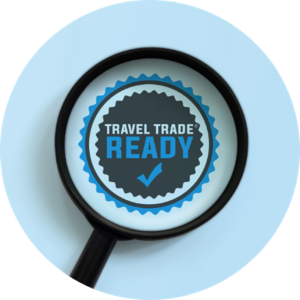What is a Travel Buyer? Understanding the Corporate Travel Expert
A travel buyer, also known as a corporate travel buyer or manager, is in charge of managing business travel for companies. They handle everything from making travel policies to working with airlines and hotels. Let’s learn more about what travel buyers do and why they’re important.
Key Takeaways
| Aspect | Description |
|---|---|
| Primary Role | Manage and optimise corporate travel programmes |
| Key Responsibilities | Policy development, vendor management, budget control, traveller safety |
| Skills Required | Negotiation, data analysis, industry knowledge, strategic planning |
| Impact | Cost savings, improved traveller experience, risk management |
| Future Trends | Integration of AI, VR, and AR technologies in travel management |
Understanding the Role of a Travel Buyer
A travel buyer works for a company to book trips, manage risks, and talk to travel companies. They’re the experts on business travel within their company. Travel buyers make sure employees have good, safe trips that don’t cost too much while following company rules.
Travel buyers are really important in managing business travel. They have to balance what travellers need with what the company can afford. This means they need to know a lot about travel, be good at negotiating, and know how to use technology well.
Travel buyers also help keep travellers safe. They make sure employees know about any safety issues and can get help if they need it during their trips. They work with different parts of the company to make sure travel policies fit with what the business wants to do and follow any laws.

Key Responsibilities of a Corporate Travel Buyer
Corporate travel buyers have many jobs. Their main responsibilities include:
- Making and using travel policies
- Working with airlines, hotels, and car rental companies
- Controlling how much money is spent on travel
- Making sure travellers are safe and follow the rules
- Looking at travel data and trends
- Using and managing travel technology
- Helping and guiding travellers
These professionals work hard to create travel programmes that work for both the company and its employees. They talk to airlines, hotels, and car rental companies to get the best prices and services. By building good relationships with these companies, travel buyers can often get special deals for their companies.
Travel buyers also teach employees about travel policies. They often create training programmes and send out information to keep travellers up to date on policy changes, best practises, and safety guidelines.

The Changing World of Corporate Travel Management
The job of travel buyers has changed a lot in recent years. Instead of controlling every little thing, they now focus more on planning and making trips better for employees. Modern travel buyers try to save money while also making sure business trips are good experiences for employees.
This change has happened because of new technology, the evolving expectations of travellers,, and how global business works. Travel buyers now need to keep up with the latest trends and new ideas in the travel industry to do the best job for their companies.
The COVID-19 pandemic has made things change even faster in the travel industry. There’s now more focus on health and safety rules, flexible booking policies, and thinking about remote work. Travel buyers have had to adapt quickly to these new challenges, figuring out how to make travel safe and efficient in a world that’s changing fast.

Using Technology in Travel Management
Technology is really important in modern travel management. Travel buyers use lots of different tools and platforms to make their work easier and improve travel for employees. Some key technology solutions include:
- Travel management software and platforms
- Online solutions for booking trips and managing expenses
- Tools to make sure people follow the rules
- Mobile apps to help and communicate with travellers
- Tools for analysing data and making reports
- Artificial intelligence for predicting trends and giving personalised recommendations
These technologies help travel buyers do many parts of their job automatically, from booking trips to tracking expenses. They also provide valuable information that can be used to make travel programmes better and find ways to save money.
Travel buyers need to stay informed about new technologies and think about how they might affect corporate travel management. This includes understanding how blockchain can make transactions more secure, how chatbots can help travellers, and how virtual reality might be used to preview destinations before trips.

Key Parts of Modern Travel Management
Good travel management is based on several important things:
- Trust and being open
- Making processes simple
- Taking care of travellers and keeping them safe
- Making business travel more environmentally friendly
- Saving money and creating value
- Making sure travellers are happy and healthy
Travel buyers need to think about all these things when they’re creating and using travel programmes. They need to make policies that are easy to understand and follow, while also making sure travellers are safe and healthy. By focusing on these important points, travel buyers can create good travel programmes that help both the company and its employees.
Being environmentally friendly has become more important in corporate travel management. Travel buyers now need to come up with ways to reduce how much business travel affects the environment, like promoting virtual meetings when possible, choosing eco-friendly transportation, and working with suppliers who care about the environment.
Making Corporate Travel Programmes Better
One of the main goals of a travel buyer is to make the corporate travel programme as good as it can be. This involves:
- Making sure people follow travel policies
- Getting better prices from airlines, hotels, and car rental companies
- Using data to keep improving
- Finding ways to save money without making trips worse for travellers
- Making booking trips and managing expenses easier
- Regularly looking at and updating travel policies to fit changing business needs
Travel buyers use data analysis to spot trends, track spending, and find areas where they can improve. They work closely with finance departments to make sure travel expenses fit with company budgets. By always working to make travel programmes better, buyers can help their companies save money while making trips better for employees.
To make their travel programmes really good, travel buyers also compare their programmes to what other companies are doing and what experts say are the best practises. Travel buyers often go to industry meetings and events to share what they know and learn from others, making sure their travel programmes stay competitive and efficient.

The Important Role of a Travel Buyer
Travel buyers play a really important role in their companies. They work with different departments, like finance, human resources, and legal, to make sure travel policies fit with what the company wants to do. Their work directly affects the company’s bottom line by saving money and making things more efficient.
Travel buyers also help make employees happier and more productive by making sure their trips go smoothly. They also play a crucial role in managing risks, keeping travellers safe and informed about potential problems or safety concerns.
As companies realise more and more how important business travel is for growing and building relationships, the value of travel buyers keeps growing. They’re often involved in high-level talks about company strategy, giving insights on how travel can help achieve business goals and contribute to the overall success of the organisation.

The Skills and Qualifications Needed to Be a Good Travel Buyer
To do well in their job, travel buyers need a variety of skills and qualifications, including:
- Understanding travel rules and industry trends
- Being good at using booking systems and analyzing data
- Strong skills in negotiating and managing relationships with suppliers
- Being able to think strategically and solve problems
- Excellent communication and people skills
- Being able to adapt and willing to use new technologies
- Knowing about risk management and how to take care of travellers
Many travel buyers have backgrounds in travel management, hospitality, or business administration. It’s important to keep learning in this field because the travel industry is always changing. Successful travel buyers stay informed about new technologies, industry trends, and best practises to provide the best possible service to their organisations.
Professional certifications, like the Global Travel Professional (GTP) certification offered by the Global Business Travel Association (GBTA), can also make a travel buyer more credible. These certifications show that someone is committed to professional development and really understands the complexities of corporate travel management.

The Future of Corporate Travel Buying
The future of corporate travel buying is exciting and full of possibilities. New technologies like virtual reality (VR), augmented reality (AR), and artificial intelligence (AI) are going to change the industry. Travel buyers will need to adapt to these changes and find ways to use new technologies in their travel programmes.
At the same time, travel buyers will need to balance using technology with providing personal service. While technology can make many processes easier, the human touch is still important in managing travel programmes and addressing the unique needs of business travellers.
The growing focus on being environmentally friendly and responsible travel is also likely to shape the future of corporate travel buying. Travel buyers will need to come up with ways to reduce how much business travel affects the environment while still meeting what the organisation needs. This might involve using more virtual meeting technologies, choosing sustainable transportation options, and working with eco-friendly suppliers.

Conclusion: Why Travel Buyers are So Important in Modern Business
Travel buyers play a crucial role in modern business, managing complex travel programmes that balance the need to save money with the need to make travellers happy. They do everything from developing policies to managing relationships with suppliers, and their work directly affects both the financial health of their organisations and the experiences of business travellers.
As the travel industry continues to change, the expertise of travel buyers remains invaluable. While technology has automated many aspects of travel management, the strategic insight and human touch provided by travel buyers can’t be replaced.
Travel Trade Ready supports both travel buyers and suppliers, providing tools and resources to help them navigate the complex world of corporate travel. By using these resources and staying informed about industry trends, travel buyers can continue to add significant value to their organisations in the years to come.


